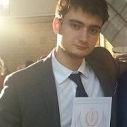| Thu. July 03, 2025 | |

|
|
|
 By Panos Chatzinikolaou Over the past few months many have condemned the EU for failing to give a proportional response to Russia for its now proven actions in the Ukrainian civil war. The argument that the EU is too dependent on Russia has been in the forefront of those critiques and that as winter approaches, the energy dependant union will be even more cautious than before. However, the EU managed to prove many people wrong during the past week, even if those people did not fully understand how. The previous week proved to be vital in the political coordination of Europe, since leaders appointed two of the most important figures in European government: the next President of the European Council, Donald Tusk and the next Foreign Affairs Chief, Frederica Mongherini. Furthermore, the 6-designate Commission Vice-Presidents have been informally announced, thus completing the overview of the next College of Commissioners. Each of these appointments sends a clear message to Russia, a message stronger than many of the EU critics would have hoped. For the first time in European history, the President of the European Council and four out of the six Commission Vice-Presidents are from member states in Eastern Europe. The most influential of the positions mentioned above, is that of the President of the European Council, who along with the Commission President, are considered to be the heads of European government. Thus, the appointment of the former Prime Minister of Poland, Donald Tusk, is of outmost importance to future EU-Russia relations. That is because, besides being known as a close friend of Angela Merkel, Tusk is seen as being one of most outspoken critics of the Kremlin’s actions in Ukraine, characterizing Russian involvement in the Ukraine crisis as a violation of the former’s territorial integrity and has pushed for stronger sanctions against his country’s neighbour. In addition, his political activity began during Poland’s communist regime, when he was a member of the anti-communist movement Solidarity, which strived to halt Soviet involvement in Poland. Thus, it is clear that one of Tusk’s main concerns, as a leader of an Eastern European country, is the prevention of a potential repetition of the Russian involvement he witnessed in his country during his early political days. He is thus expected to adopt a harsher stance on the issue that most of his European counterparts. The same principles can be applied to Commissioners from Latvia, Slovakia, Poland, and Estonia, all of which have been named as Vice-Presidents of the next European Commission. It is also noteworthy that US President Barack Obama has visited the capital of Estonia, Tallin, two times during the past 4 months, whereas before the Ukraine conflict it received only one visit from a US President. European leaders integrated Europe’s Eastern member states with European leadership to the greatest extent seen in the history of the Union, thus sending a clear message to the Kremlin, a message that will last for the next five years. Therefore, it is clear that the EU gave a strong response to Russian involvement in Ukraine. A response stronger than any form of sanctions could ever provide. A response that will be overlooking and shape EU-Russia relations until the next European Elections, in 2019.
Panos Chatzinikolaou is a student of Politics and International Relations at the University of Reading.
|
|
| Contact Us | About Us | Donate | Terms & Conditions |
|
All Rights Reserved. Copyright 2002 - 2025
